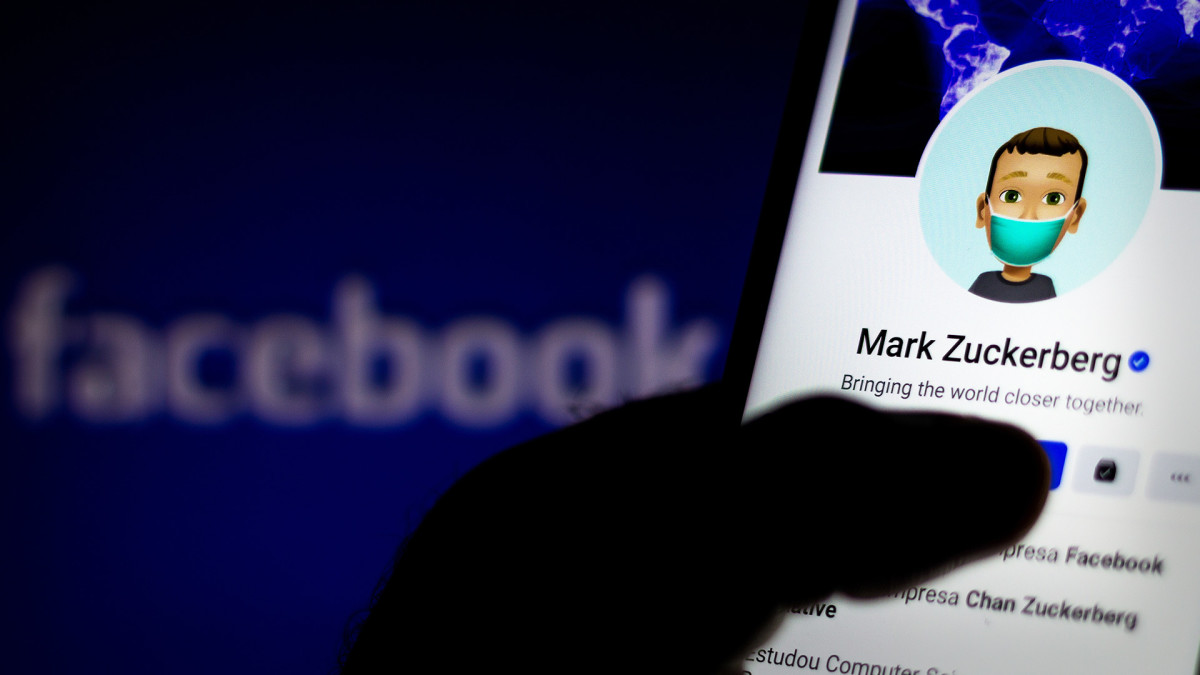
One of the world’s biggest social media companies is focused on spurring growth as it enters a new year. But in this case, Meta Platforms (META) has a vision for its social network that isn't focused on its typical user base.
💰💸 Don’t miss the move: SIGN UP for TheStreet’s FREE Daily newsletter 💰💸
The owner of Facebook, Instagram, and WhatsApp plans to implement a new business strategy that could radically transform the social media landscape.
This plan may have seemed highly futuristic only a few years ago, resembling something from a science fiction movie.
In recent years, Meta has zeroed in on metaverse technology. With the recent advancements in artificial intelligence (AI), metaverse tech has continued to grow, changing how social media users communicate, create and share content.
Related: Veteran fund manager issues dire S&P 500 warning for 2025
However, Meta’s leadership has stated that it is eyeing a new means of driving growth for its platforms that may change the social media landscape even more.

Rafael Henrique/SOPA Images/LightRocket via Getty
The future of social media may not be what you think
Many tech companies have rushed to capitalize on the rise of AI, recognizing its power to drive growth for their platforms. However, Meta’s new plan to keep engagement high on its platforms could represent a major shift in AI regarding how it can be used by companies in the social media space.
Connor Hayes, Meta’s vice president of product for generative AI, recently revealed that the company’s new range of AI products includes one that will help users create their own AI characters on Facebook and Instagram.
Related: Elon Musk just got the best Christmas gift he could ask for
Hayes noted that Meta expects these AI users to be implemented on the platforms over time and function just like human users.
“They’ll have bios and profile pictures and be able to generate and share content powered by AI on the platform . . . that’s where we see all of this going,” he states.
This comes at a time when Meta is facing an uncertain industry landscape, particularly for Facebook. The platform once sparked an entire generation’s interest in social media, as users of many different age groups flocked to join the digital revolution. Still, in recent years, things have shifted.
A recent study from the Pew Research Center reveals that only 32% of teenagers say that they regularly use Facebook, down from the 71% that said they did in 2014. While Instagram still remains fairly popular with young users, teens have increasingly opted to use platforms such as YouTube, TikTok, and Snapchat over Facebook.
This presents a problem for Meta, and the company seems to see AI-generated users as the solution.
Related: Major cybersecurity attack from China exposes systematic flaws
Industry leaders like Elon Musk have expressed concern about the rise of automated social media users, often referred to simply as ‘bots.’ Now, they seem to be a cornerstone of Meta’s growth plans.
Kaveh Vahdat, founder and CEO of generative AI-powered game creation platform RiseAngel, spoke to TheStreet about Meta’s AI plans.
More Tech Stocks:
- Ongoing problem may be costing Nvidia customers
- Tesla financial history exposes Elon Musk hypocrisy
- Broadcom CEO sounds alarm on crucial shift in AI-chip market
“Meta’s vision of AI-generated characters as ‘digital users’ signals a fundamental shift in how we interact online, he says.
“These entities won’t just be bots—they’ll be hyper-personalized, adaptive digital beings designed to engage us in ways humans can’t, such as 24/7 availability, instant data recall, and perfectly tailored conversations.”
Meta’s growth plan poses ethical concerns
If these highly advanced bots are indeed coming, how will the social media ecosystem be impacted?
Vahdat also elaborated on that question, noting that “AI-generated accounts could rewrite the rules of social media virality.” He also sees a future in which these AI versions of digital influencers “might outcompete human influencers in scale, consistency, and engagement.“
As Vahdat sees it, this trend has the power to energize struggling platforms like Facebook but could also easily be manipulated. “If these AI characters begin shaping cultural narratives, Meta will need to ensure users know when they’re interacting with an algorithm rather than a person,” he warns.
Related: A year in review: the most important tech news stories of 2024
Other experts have raised similar concerns regarding the problems that Meta’s AI expansion could pose. Technology attorney Star Kashman, a founding partner at Cyber Law Firm, also provided context on the broader implications of this trend. In her words:
“AI users will likely prioritize pushing out content that drives engagement metrics, regardless of its emotional or psychological impact on users. An AI user is not the same as a regular user, who could see something and feel harmed and hurt by that content, ignoring it and pushing it down.”
She adds that if AI users can only see statistics, it will likely “amplify the algorithm’s tendency to promote extreme or harmful content,” which she sees as already a significant problem.
Related: The 10 best investing books (according to stock market pros)







